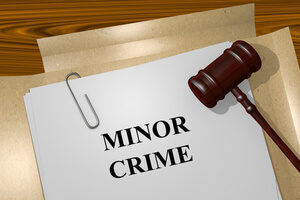Legally Reviewed By:
Brian P. Gabriel, Esquire
 While there have been fewer arrests of juveniles for minor crimes overall, the use of civil citations throughout Florida has been sporadic and sparse. Fifty of the sixty-seven counties in the state used civil citations in the past year less than 60% of the time, earning the state an “F” by the report “Stepping Up: Florida’s Top Juvenile Civil Citation Efforts 2017.”
While there have been fewer arrests of juveniles for minor crimes overall, the use of civil citations throughout Florida has been sporadic and sparse. Fifty of the sixty-seven counties in the state used civil citations in the past year less than 60% of the time, earning the state an “F” by the report “Stepping Up: Florida’s Top Juvenile Civil Citation Efforts 2017.”
By far, the lowest performers were Hillsborough, Duval, and Orange counties, compromising 24% of the over 8,700 youth arrests in the state in 2016. “The data shows the state is moving in the right direction, but at a slow pace,” claimed Dewey Caruthers, president of The Caruthers Institute. The Caruthers Institute is a St. Petersburg-based non-profit organization that researches and develops solutions for youth issues in Florida and has conducted the study over the past three years.
Not all counties, however, did a below-average job of issuing citations. Miami-Dade and Pinellas county came out on top for the second year in a row, issuing tickets to 94% of eligible youth. Minors caught committing offenses like underage drinking, vandalism, loitering, fighting, or possessing alcohol or marijuana may be eligible to receive a citation as an alternative to facing arrest.
How did Palm Beach County perform?
In all, just 4% of counties earned an “A” or a “B,” and Palm Beach was not one of them. According to the report, Palm Beach County police chose civil citations 71% of the time they were able to, earning the county a “C.” To see how your county performed, click here.
Downsides of Arresting Youth Offenders
It used to be that when kids were disorderly, they’d earn a trip to the principal’s office. These days, an increasing number of children are facing legal consequences for typical misbehavior. Many juvenile crimes lead to severe consequences for minors.
Arresting minors for low-level offenses leads to greater issues further down the road. Youth that become entangled in the juvenile justice system often leave better criminals as they pick up tricks from other youth offenders who committed worse crimes. Arresting teens and preteens also uses up substantial police resources, costing taxpayers millions a year.
What are the benefits of issuing civil citations to Florida’s youth?
Saves Tax Dollars
Between July 2013 and December 2016, Florida taxpayers saved $56 million to $176 million due to law enforcement officers issuing civil citations instead of making arrests. Taxpayers save between $1,468 and $4,614 per arrest each time police choose an alternative to arrest.
Keeps Kids Out of Juvenile Detention Centers
In Florida, private corporations with shoddy hiring practices operate the majority of juvenile detention centers.. A Miami Herald report uncovered the abuse that takes place at these centers. Keeping kids out of youth prisons keeps them safe from potentially harmful conditions.
Lowers Chances of Recidivism
Outperforming every other county besides Pinellas, Miami-Dade County, which has used civil citations for qualifying offenses for more than ten years, boasts a recidivism rate of 3%, below the state average of 4%. This implies that youth offenders who receive a citation rather than get arrested are less likely to re-offend in the future.
Florida still has a long way to go to make the most out of civil citations for youth offenders. If you or your child face criminal consequences for an alleged offense, you need legal representation the moment police begin their investigation. Contact The Law Office of Gabriel & Gabriel to discuss your criminal case with Brian Gabriel, a respected West Palm Beach criminal defense lawyer who has worked to defend youth offenders throughout this 30-year career.



